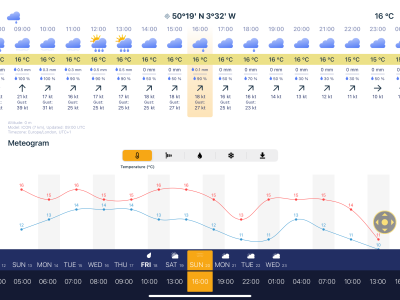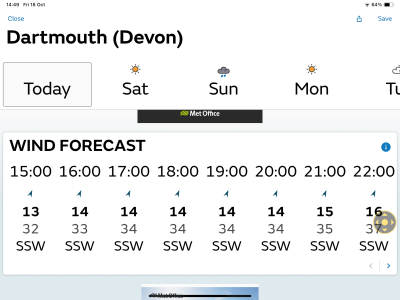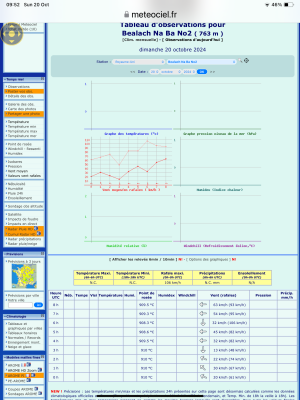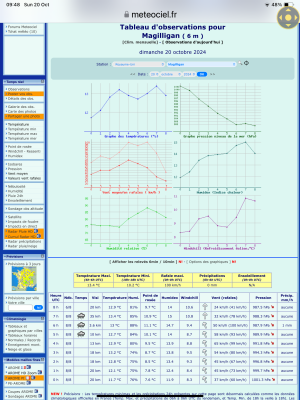chriss999
Well-Known Member
… I would not regard 15 with gusts to 26 as unlikely. I have seen actual reports of gusts being twice the average wind. Given the quality of Met Office scientists, I suspect that their gust forecasts should no be disregarded.
Looking on the met office app just now at my location for tomorrow, the gust forecast averages three times the wind forecast, and this persists for the whole day. At a nearby location at times the gust prediction is 4x. Surely implausible. This sort of prediction tests my faith in the Met.A good source of latest actual data is pened on Sligo Airport. See the image attached. Gusts nearly double the mean wind!




